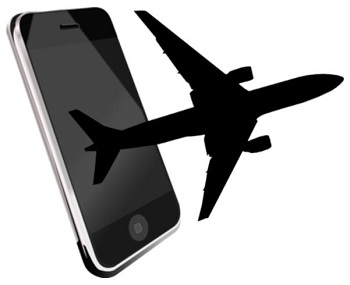The first B747-8 planes have now been delivered with the in flight AeroMobile service.
Boeing has now delivered its very first B747-8 aircraft that will be completely line fitted with the in flight AeroMobile mobile technology service that will then be expanded across many more.
This first craft has been delivered to Lufthansa, a German carrier which seeks to expand the service.
Lufthansa has stated that it will be rolling out the mobile technology throughout all of its long haul fleet before the end of this year. Aside from the B747-8 model aircraft, there will be another model from Boeing that has also already received its clearance for the line fit of AeroMobile. This will be the B777-300ER. Among the customers for that aircraft are Singapore Airlines, Etihad Airways, and Thai Airways.
The AeroMobile mobile technology is based in the United Kingdom and allows for cell phone use.
The tech makes it possible for passengers on the fitted aircraft to be able to use their smartphones to be able to make calls, send texts, and surf the web while they are on a flight. AeroMobile has established roaming agreements with over 240 wireless operators that will then pass the costs onward to their own subscribers.
According to Kevin Rogers, the chief executive at AeroMobile, “Consumers expect to be connected 24/7 and being up in the air is no longer an exception.” Clearly, it is the intention of these airlines to be able to provide a service that allows them to continue to meet those expectations so that they can provide consumers with the experience that they want.
Rogers went on to explain that last year, this mobile technology service observed an increase of nearly 80 percent in the number of passengers who were using their smartphones and mobile devices while they were onboard. Within that same span of time, there was also ten times more data usage than there had been the previous year, and there was a 50 percent rise in the number of text messages that were sent and received. Clearly consumers expect to be able to communicate regardless of whether they are in the air or on the ground.
The same forecasts have seen those devices outselling notebooks in 2014.
Although smaller sized tablets have been growing in popularity over the last few years, it is phablets that are expected to be the hot mobile devices, this year, as at least one analyst has already predicted that they will become the top gadget in terms of sales.
The Kindle Fire’s 7 inch tablet exploded into the market, changing the consumer expectation for screen size.
That device was first launched near the end of 2011. They have gone on to produce many more mobile devices at that and small tablet model sizes. Others have jumped into that mobile devices market, as well, including the Nexus 7 from Google. Though some screen size is lost, there are a number of appealing advantages to a smaller sized gadget. Among the primary benefits that have been identified by users are that they are more portable, they are lighter, and they are typically less expensive than models that are 8 inches and larger.
These mobile devices have taken off due to lower price and functionality alone, but there is more to this market.
These small tablets may be the volume leader at the moment, but it is anticipated that a whole new class is about to take over. The Galaxy Note kicked this trend started, when Samsung’s gadget was nicknamed a phablet. Since then, devices with displays between 5 and 6 inches have been growing in popularity as they combine the practicality of a small tablet with the capabilities of a smartphone.
Technology analyst Bob O’Donnell, from Technalysis Research, has forecasted that this year, phablets will become popular to such a degree that they will begin outselling 7 inch tablets before the year comes to a close. The prediction is that more than 240 million phablets will be shipped this year, when compared to 158 million small screen tablets (7 to 8 inch displays), and 173 million notebooks.
O’Donnell pointed out that “We are in the midst of a dramatic recasting of the entire market for devices.” He said that this may be the next phase in entirely redefining computing, once again. It will mean that computing can occur in a new way and in new places. The outcome, he said, is that there will likely be yet another considerable shift in influence and power among the various manufacturers.



